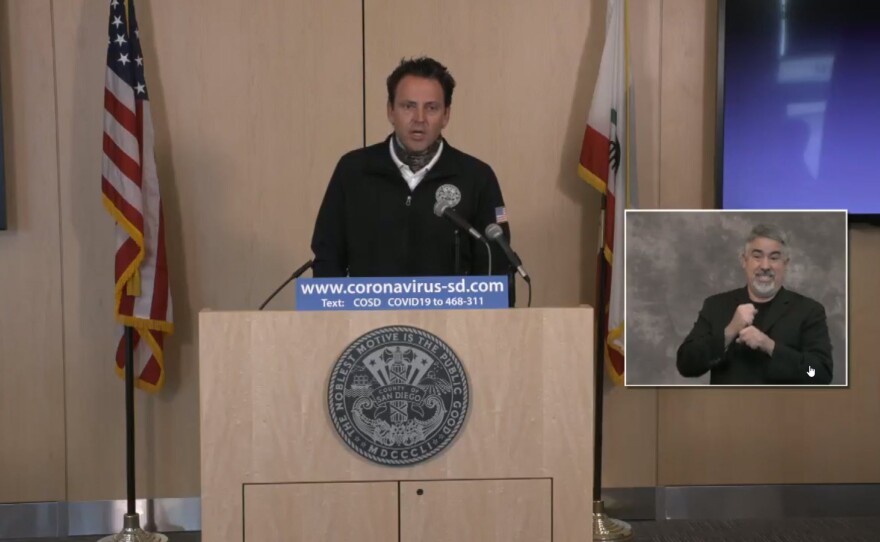For the second day in a row, San Diego County recorded its highest amount of daily tests during the COVID-19 pandemic, and officials reported 132 new cases and eight additional deaths.
The 4,055 tests reported Friday edges out Thursday's record of 3,998. The 132 new cases mark just 3% of the tests, bringing the county's two-week rolling average down to 4.4% testing positive. The total number of tests completed in the county increased to 96,150.
The eight deaths reported Friday included people aged 65 to 94, all of whom had underlying medical conditions.
County Supervisor Nathan Fletcher said that while the increasing number of tests and low positive rates were a good sign, they did not show the whole picture.
"It's not enough to just have a number of tests," he said.
Increased access in historically medically underserved regions of the county to testing would be necessary to battle the illness with any sort of effectiveness or equity, he said.
For that reason, the county will offer free tests in Southeast San Diego, include 70 tests on Saturday at the Euclid Health Center at 286 Euclid Ave. People who want to be tested should call 211 to make an appointment for the 9 a.m. to 3 p.m. testing.
Additionally, a walk-in testing site at the Tubman-Chavez Community Center at 415 Euclid Ave will open its doors Tuesday, May 19, and has capacity for 132 testing appointments a day.
Fletcher also announced starting Monday, Jewish Family Service of San Diego would begin overseeing both San Diego and Imperial counties' Immigrant Disaster Relief Fund, part of Gov. Gavin Newsom's effort to provide assistance for undocumented Californians.
On April 15, Newsom announced the $125 million state relief program to provide financial assistance to undocumented immigrants during the coronavirus pandemic.
He said the program, the first of its kind in the nation, will include $75 million in state funding and another $50 million donated by various organizations and foundations, including The California Endowment, Blue Shield of California Foundation and the Chan Zuckerberg Initiative.
Applicants for the disaster relief fund locally can apply for a one- time sum of $500. A household will be limited to $1,000. Interested applicants can call 858-206-8291 to get more information.
Greg Cox, chairman of the county board of supervisors, said the county would begin to scale down its daily briefings, moving to a Monday/Wednesday/Friday schedule, although he said officials would try to be "flexible" as changes come in.
Lake Murray and Lake Miramar reopened to the public Friday for recreational activities, and Lower Otay Lake Reservoir will follow suit on Saturday.
Residents will be allowed to walk, jog, fish and boat in those areas in the city of San Diego. Parking lots will open at half-capacity in alignment with San Diego County guidelines.
The region's hospitals currently have 399 COVID-19-positive patients, with 156 of those being treated in intensive care units. Since the pandemic began, 1,070 people have been hospitalized, 325 of whom spent some time in an ICU.
An estimated 3,503 people have recovered from COVID-19 in San Diego County.
Dr. Wilma Wooten, the county's public health officer, said the county was tracking 69 confirmed COVID-19 outbreaks. Of those, 46 are in congregate living facilities and can be traced to 1,269 cases and 97 deaths. An additional 23 community outbreaks can be traced to 275 cases and five deaths, she said.






